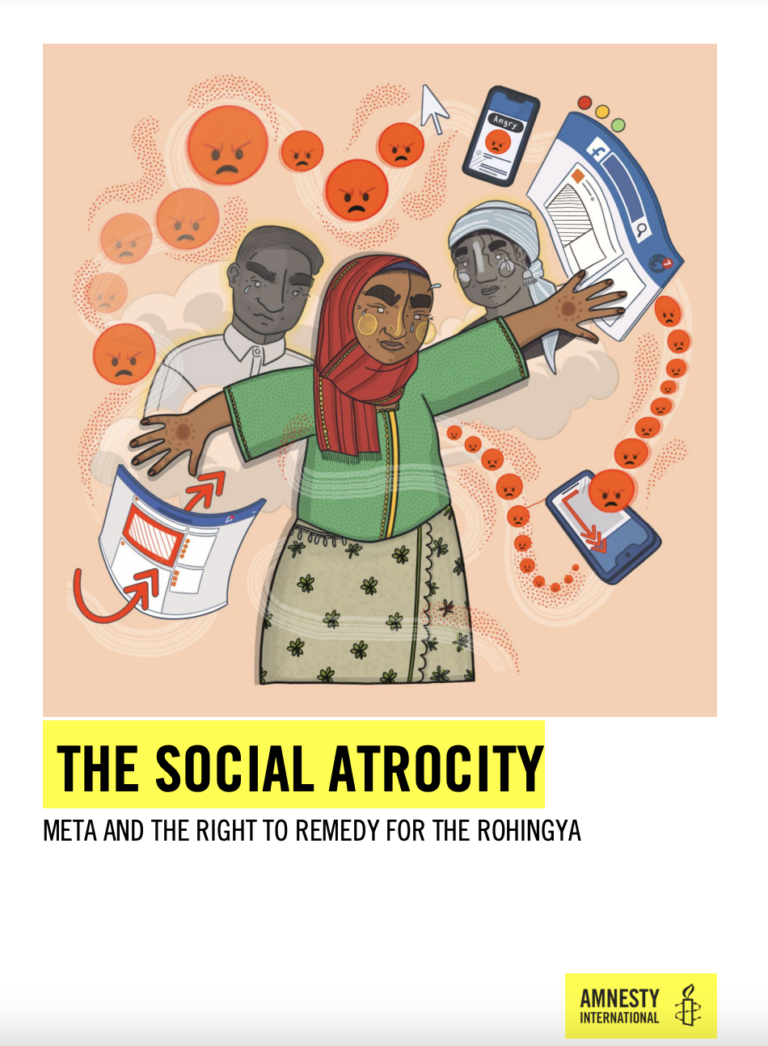Beginning in August 2017, the Myanmar security forces undertook a brutal campaign of ethnic cleansing against Rohingya Muslims in Myanmar’s northern Rakhine State. They unlawfully killed thousands of Rohingya, including young children; raped and committed other sexual violence against Rohingya women and girls; tortured Rohingya men and boys in detention sites; and burned down hundreds of Rohingya villages. The violence pushed over 700,000 Rohingya – more than 80 per cent of the Rohingya population living in northern Rakhine State at beginning of the crisis – into neighbouring Bangladesh, where most linger in refugee camps to this day. The UN’s Independent International Fact-Finding Mission on Myanmar (IIFFMM) called for senior military officials to be investigated and prosecuted for war crimes, crimes against humanity, and genocide.
In the months and years leading up to and during the 2017 atrocities, Facebook in Myanmar became an echo chamber of virulent anti-Rohingya content. Actors linked to the Myanmar military and radical Buddhist nationalist groups systematically flooded the Facebook platform with incitement targeting the Rohingya, sowing disinformation regarding an impending Muslim takeover of the country and seeking to portray the Rohingya as sub-human invaders. The mass dissemination of messages that advocated hatred inciting violence and discrimination against the Rohingya, as well as other dehumanizing and discriminatory anti Rohingya content, poured fuel on the fire of long-standing discrimination and substantially increased the risk of an outbreak of mass violence.

